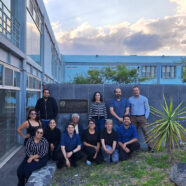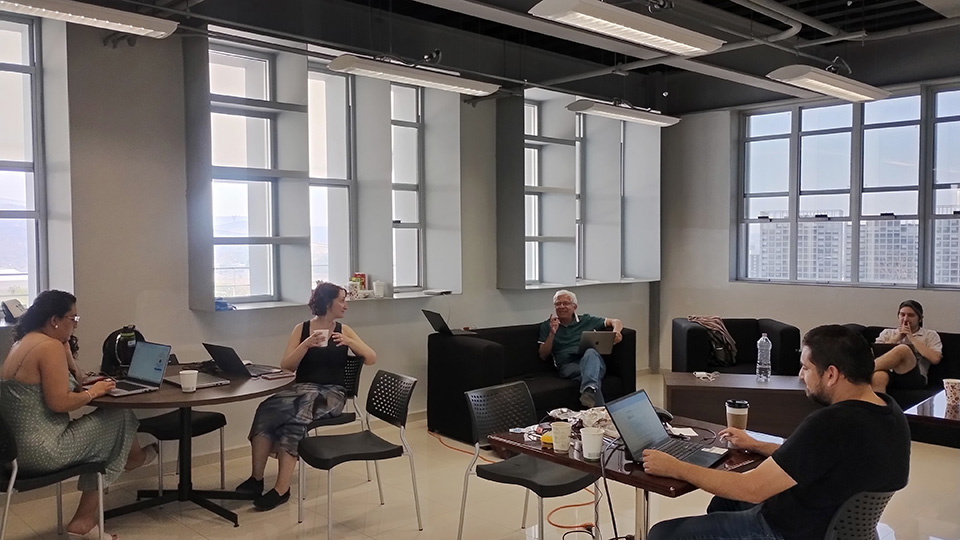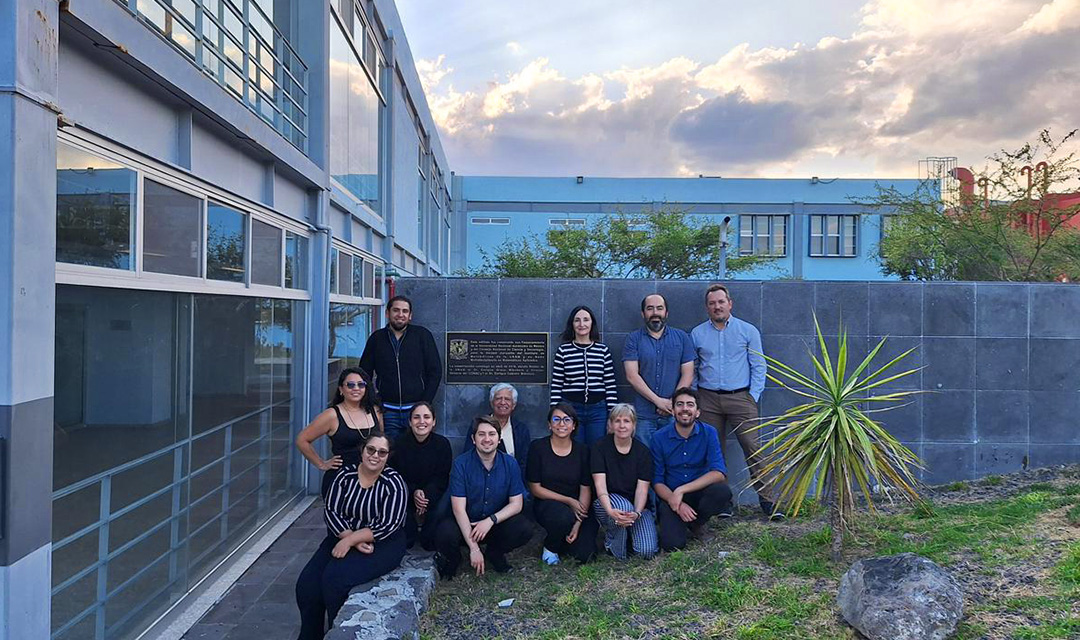
A project promoted by the international cooperation agencies AGCID and AMEXCID seeks to generate recommendations for epidemic management in public policy, and its researchers are already developing ideas to address new challenges.
Between May 19 and 23, 2025, a delegation from the Center for Mathematical Modeling (CMM) at the University of Chile participated in a research visit in Juriquilla, Querétaro State, Mexico, as part of the binational project “Mathematical modeling of epidemic processes incorporating population and regional structure and risk groups.” On this occasion, researchers from the CMM’s applied research line in Digital Health —Héctor Ramírez, Gloria Henríquez, and Víctor Riquelme—together with professionals Estefanía Fröhlich and Diego Olguín, traveled to the UNAM headquarters to carry out the activities they had committed to in the project design.
This initiative is funded by the Chile-Mexico Cooperation Fund, which, on the Chilean side, includes the participation of the Center for Epidemiology and Health Policy (CEPS) at the Universidad del Desarrollo, the AM2V research group at the Universidad Técnica Federico Santa María, and the Universidad de Aysén, in addition to the CMM. On the Mexican side, the Institute of Mathematics and the Juriquilla Unit of the National School of Higher Studies of the Universidad Nacional Autónoma de México (UNAM) are participating, together with the Universidad de Sonora.

“What we do every day is hold work meetings to advance the project’s objectives and activities, in accordance with the commitments we have made to the international cooperation agencies of both countries,” explained Gloria Henríquez, adding that, according to the plan, there is still an internship for Mexican researchers in Chile and a closing event in Mexico, similar to the one held for the project’s inauguration in our country.
“What we are currently doing is incorporating social determinants into mathematical modeling in order to provide recommendations on epidemic management,” explained Víctor Riquelme about this project, which was prompted by the health consequences of the COVID-19 crisis.
He explained that “traditionally, mathematical models do not consider population and social factors such as phenomena associated with migration, poverty, ethnicity, social vulnerability, gender, rurality, and their consequent effects,” which is particularly relevant in countries such as Chile and Mexico.

“The aim is for the project’s results to generate recommendations for decision-makers in both countries,” the researcher explained, adding that this meeting identified opportunities for future work and continued collaboration.
“With this visit,” Riquelme added, “we are strengthening ties with the Mexican team and consolidating collaboration networks between both teams on issues relevant to both countries.”
By Iván Tobar Bocaz, CMM Communications
Posted on Jul 1, 2025 in News




 Noticias en español
Noticias en español
